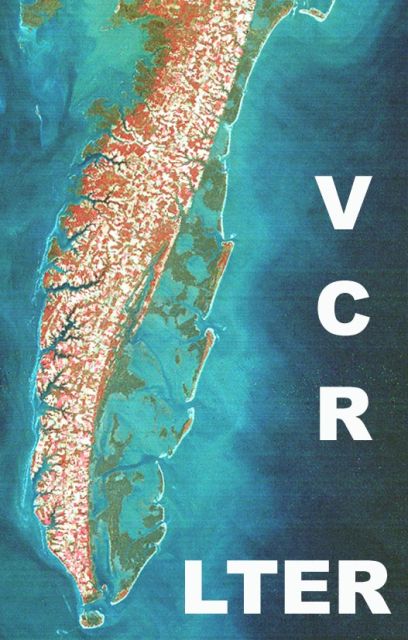Virginia Coast Reserve LTER site
Primary tabs
Overview:
Data from the Virginia Coast Reserve Long-Term Ecological Research site.
Data: http://www1.vcrlter.virginia.edu/home1/?q=dataCatalog or http://metacat.lternet.edu/das/lter/browse.jsp#VCR
Research Topics: Holocene barrier island geology; salt marsh ecology, geology, and hydrology; ecology/evolution of insular vertebrates; primary/secondary succession; life-form modeling of succession.
 The Virginia Coast Reserve (VCR) is an extremely dynamic, heterogeneous coastal barrier landscape comprising mainland watersheds, tidal marshes, lagoons, and barrier islands.The goal for the VCR LTER program is to develop a predictive understanding of the response of coastal barrier systems to long-term environmental changes in climate, sea level and land use, and to relate these to the ecological services the coastal barrier systems provide. The project focuses on how slow progressive environmental changes interact with short-term disturbances such as storms and species invasions to control the dynamics and biotic structure in the coastal barrier landscape. Coastal barrier systems like the VCR are prominent features of shorelines on most continents and are important globally.
The Virginia Coast Reserve (VCR) is an extremely dynamic, heterogeneous coastal barrier landscape comprising mainland watersheds, tidal marshes, lagoons, and barrier islands.The goal for the VCR LTER program is to develop a predictive understanding of the response of coastal barrier systems to long-term environmental changes in climate, sea level and land use, and to relate these to the ecological services the coastal barrier systems provide. The project focuses on how slow progressive environmental changes interact with short-term disturbances such as storms and species invasions to control the dynamics and biotic structure in the coastal barrier landscape. Coastal barrier systems like the VCR are prominent features of shorelines on most continents and are important globally.
The VCR barrier island/lagoon system extends 110 km along the Atlantic shore of the Delmarva Peninsula. Sandy and dynamic barrier islands are backed by salt marshes and shallow lagoons and separated from one another by deep inlets.